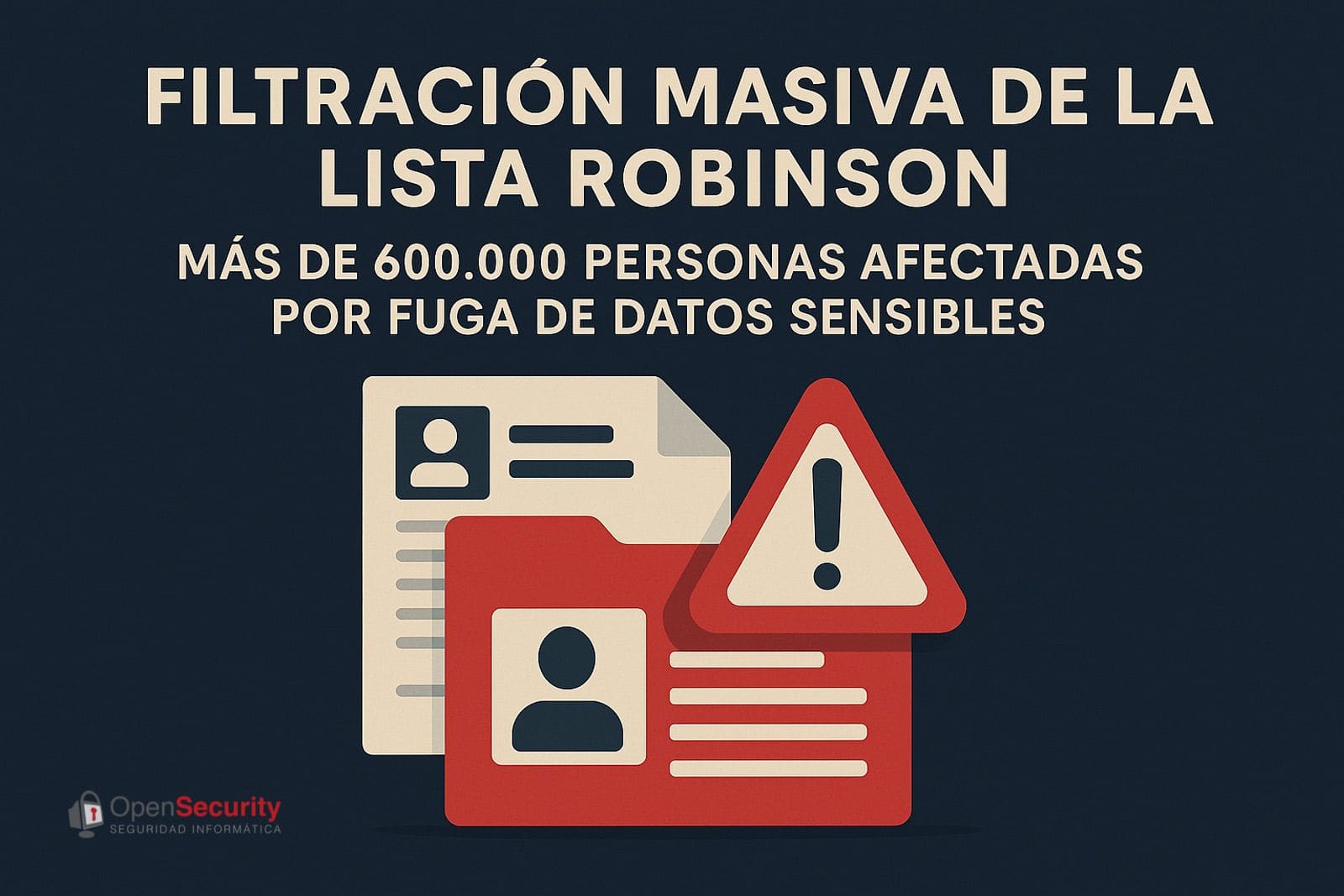Sure! Here’s the translation into American English:
The security of personal data is once again in question following reports of a massive leak affecting the Robinson List, a registry managed by the Spanish Association of Digital Economy (Adigital) that allows citizens to limit the use of their personal data for advertising purposes. This time, highly sensitive data from over 600,000 individuals was exposed, ironically, those who signed up for the list precisely to stop receiving unwanted communications.
Leaked Personal Data: A Cybersecurity Risk
According to information shared on dark web forums, the data package includes full names, DNI/NIF numbers, postal addresses, phone numbers (landline and mobile), and email addresses. Although the authenticity of the information has not yet been officially confirmed, the actor who published the database provided examples as “proof” of its validity. The majority of the leaked records reportedly originate from the Community of Madrid, but it is indicated that the impact affects individuals from various regions of Spain.
This data exposure could facilitate social engineering campaigns, identity theft, or highly personalized targeted fraud, posing a considerable risk to both individuals and companies operating in digital and cloud computing sectors.
A Structural Problem in Data Protection
The Robinson List is designed to protect citizens from spam calls and other forms of direct marketing. However, this leak reveals a significant gap in the mechanisms for storing, safeguarding, and securing databases held by organizations that manage sensitive information. The fact that this system has been compromised highlights the urgent need for a review of digital security practices in both the public and private sectors.
Such incidents underscore the importance of strict compliance with the General Data Protection Regulation (GDPR) and the implementation of higher security standards, especially for organizations that handle personal information at scale.
Sector Reactions and New Measures
In response to the growing public concern over unwanted communications, Telefónica has begun blocking international calls that mimic national numbers, a common technique in spam and phone fraud campaigns. This measure, implemented ahead of the schedule set by the Ministry for Digital Transformation and Public Function, aims to close one of the most commonly used avenues for deceiving users.
However, experts agree that such actions are insufficient if not accompanied by a comprehensive improvement in security policies and active monitoring of data managed by consent and privacy management services.
In Summary
The alleged leak of the Robinson List highlights that even systems created to protect users can become attractive targets for cyber attackers if appropriate security measures are not adopted. In a context where personal data is increasingly valuable for fraud campaigns, unauthorized marketing, or illicit exploitation, the technology sector—especially the cloud ecosystem—must redouble its efforts to provide real guarantees of protection and resilience.
The trust of digital users depends, more than ever, on security at every layer of the system.
Source: Security News

